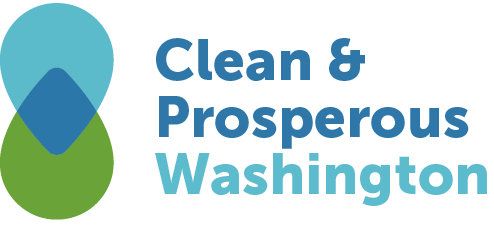How will CCA funds be invested in Clean Buildings?
Existing non-residential buildings are among Washington state’s primary consumers of energy, and together, produce over a quarter of our state’s total carbon pollution. Natural gas heats 80% of the Pacific Northwest’s commercial buildings (by square footage) and 66% of its domestic hot water, according to the Northwest Energy Efficiency Alliance’s 2019 regional commercial building stock assessment. And yet…
…“We have a huge amount at our disposal that we can use to address the environmental footprint of the built environment,” says architect Maria Smith, director of sustainability and physics at engineering consultancy firm Buro Happold and editor of a report from the Royal Institute of British Architects (RIBA) on decarbonising the building sector. “We shouldn’t feel like we need to wait for breakthrough technologies in order to act.” The report says,
The potential of the construction sector to address the climate and biodiversity emergency can be realised through system- wide analysis and action. By enabling greater collaboration between the sector and the public, policymakers, investors, owners, and regulators, we can scale up and speed up change. Governments have a vital role to play. Through leadership and regulatory oversight, governments can maximise the potential of the built environment, support all those impacted by change (both local to and remote from the project site), and provide the infrastructure that enables collective action from the sector and wider society.
Governments can also support collective action through smart investments. As the 2023 legislative session in Olympia nears its finish, the Washington State House and Senate are negotiating final budgets that will invest revenues from Climate Commitment Act (CCA) emissions allowance auctions to help improve efficiency and reduce emissions.
Last week we highlighted investments proposed for the Transportation sector, and earlier this week we took a look at budget proposals for Clean Energy. Today our focus is on the Buildings budget. For greater detail on Clean Buildings, click this chart to see highlights from the House and Senate budget proposals:
One investment we think is especially smart is the High Efficiency Electric Home Rebate Program with Energy Assistance. Funding is provided for grants to utilities and partnering organizations to offer a scaled rebate to low-and-moderate income households and small commercial businesses to purchase and install high-efficiency electric equipment, including heat pumps. Further funding is provided through the Weatherization Plus Health program, for financial assistance to low-income households for home energy efficiency and health improvements. Of the funds provided, $5 million is for the Community Energy Efficiency Program. (CEEP provides support to homeowners and small businesses across the state so they can make energy efficiency upgrades to existing residences and commercial buildings.)
There is also a suite of local and community energy efficiency projects in Bellevue, Pasco, Okanogan, Spokane, Bellingham, Yakima Valley, Tukwila, and Seattle, and Climate Plus Grants for Schools, to help small school districts across the state to update their HVAC systems.
Several projects are geared towards meeting the requirements of the Clean Buildings Act. Within the bill – which was expanded in 2022 – the Clean Buildings Performance Standard sets energy performance targets for various building types, which go into effect beginning in 2026. Per the Department of Commerce, “the objective is to lower costs and pollution from fossil fuel consumption in the state’s existing covered buildings and multifamily buildings. The law also provides incentives to encourage building owners to make energy efficiency improvements earlier than required.” CCA revenues will help fund these incentives.
Next we’ll share a closer look at proposed budgets for Natural Resources.
